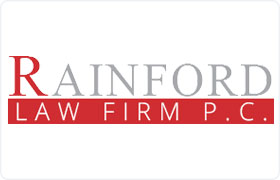Roswell Credit & Debt Lawyer, Georgia, page 6
Sponsored Law Firm
-
 x
x

Click For More Info:
-
Rainford Law Firm P.C.
4920 N Henry Blvd. Stockbridge, GA 30281» view mapBankruptcy & Debt Law Experienced Bankruptcy & Debt Lawyer
Regardless of your situation, Attorney Chalcia Rainford is more than happy to guide you in the direction that will be most beneficial for you!
800-632-9140
David N. Bryman
Real Estate, Federal Trial Practice, Business & Trade, Credit & Debt
Status: In Good Standing Licensed: 33 Years
Michael Scott Peskin
Litigation, Credit & Debt, Bankruptcy & Debt
Status: In Good Standing Licensed: 37 Years
Danielle Cherese Brown
Real Estate, Dispute Resolution, Credit & Debt, Bankruptcy & Debt
Status: In Good Standing Licensed: 22 Years
Stephen Ryan Starks
Litigation, Credit & Debt, Bankruptcy
Status: In Good Standing Licensed: 26 Years
Jessica Fern Bennett
Bankruptcy, Credit & Debt, Property & Casualty
Status: In Good Standing Licensed: 14 Years
Lisa Baer Fuerst
Property & Casualty, Credit & Debt, Bankruptcy & Debt
Status: In Good Standing Licensed: 29 Years
Dwight Headley Chamberlin
Corporate, Labor Law, Credit & Debt, Products Liability
Status: In Good Standing Licensed: 18 Years
 Chalcia Rainford Stockbridge, GA
Chalcia Rainford Stockbridge, GA AboutRainford Law Firm P.C.
AboutRainford Law Firm P.C. Practice AreasExpertise
Practice AreasExpertise
